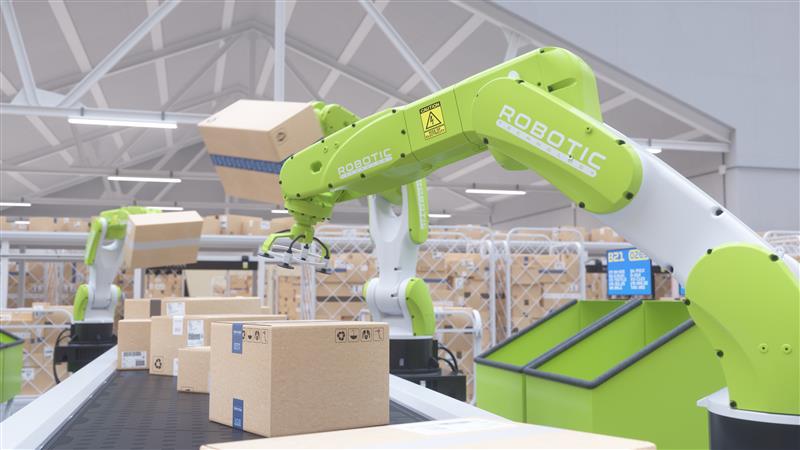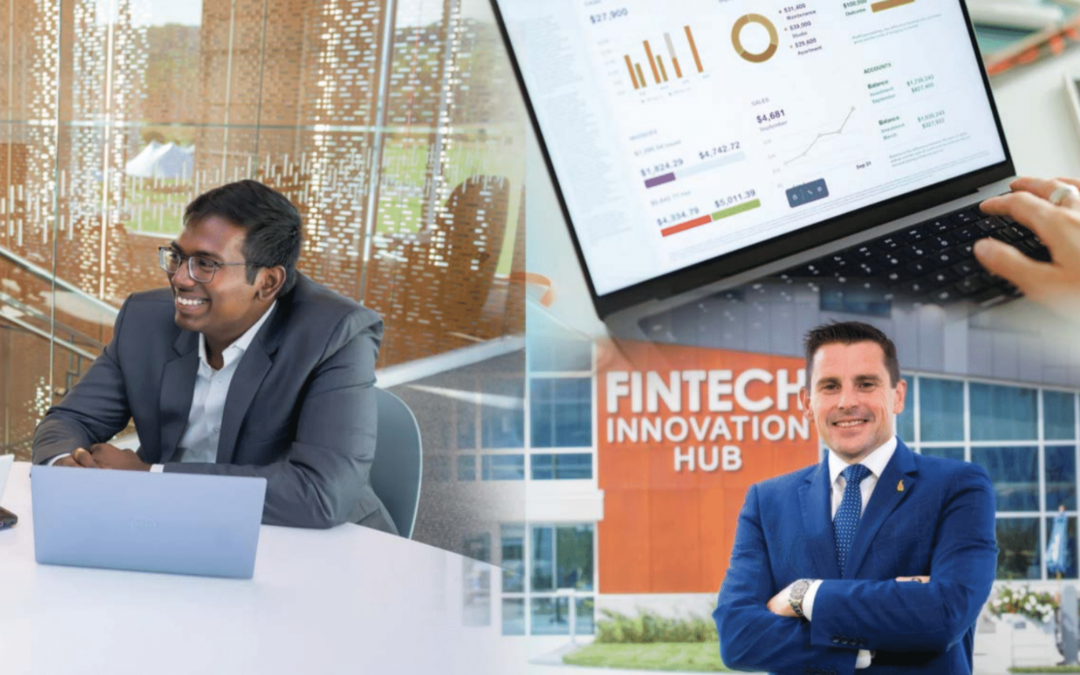FinTech Innovation Hub Tackles Complex Issues of Inclusion and Equity
August 7, 2024
Words By: Delaware Business Times
When Kristen Castell signed on to become executive director of The Center for Accelerating Financial Equity (CAFE) in July, she never doubted the nonprofit’s value and critical mission. Her belief was reinforced when more than 60 companies nationwide applied to join the organization’s inaugural cohort of the Fintech Accelerator Program, which launched in March.
“These are financial technology — or fintech — companies that arein the early or growing stage,” says Castell, formerly a corporate financial services pro before joining CAFE. “They have products in market towards this mission of somehow helping people’s financial well-being. Many of them are business to business, so they sell to large financial institutions like banks or credit unions or others.”

Kristen Castell, Executive Director, The Center for Accelerating Financial Equity
CAFE is a spoke in the wheel at the FinTech Innovation Hub, a six-story building located on theUniversity of Delaware’s STAR Campus. Six companies in the inaugural accelerator program will tackle issues like funding, partnerships, data science and regulations — areas of focus in the Hub’s mission to improve financial health in underserved, underrepresented, and low-to-moderate income communities.
“The idea is transforming the financial system to be more inclusive,” Castell says. “There’s a huge need, which the pandemic exacerbated. The question is how we’re building for the future so people are more secure. Financial security is how people are secure and have better lives, in terms of their housing, their food security, their families, their education, all of it.”
Before COVID accelerated the prevalence of fintech, Mike Bowman recognized the industry’s growth and partnered with Discover Bank to build the Hub. As president and CEO of Delaware Technology Park, Bowman wanted a place committed to helping the 6 million American households that are unbanked (meaning they have no access to a bank account).
“Fintech really took off after COVID because people were staying home,” says Bowman, whose nonprofit owns the Hub building. “Pretty soon, everything you can transact, you could do on your phone or your computer without going anywhere. With Delaware being known for its financial services, we wanted to be sure we’re at the cutting edge of that.
“The building is dedicated to the digital services that make fintech happen,” Bowman says. “It also has a second purpose: to see if we can help improve the issues of financial equity and health for the low-to-moderate income populations. The gap is getting bigger and bigger.”
A Multi-Pronged Attack
Improving people’s financial health and well-ness is a massive undertaking that requires collaboration among multiple stakeholders.
The University of Delaware has several teams in the Hub, including the College of Engineering, the Alfred Lerner College of Business and Economics, and the Office of Economic Innovation and Partnerships. The state’s Small Business Development Center has office space, too. So do fintech-related firms in data analytics and software development.
“The problems and challenges related to this are really complex,” says Tracy Shickel, UD’s associate vice president for corporate engagement and a CAFE advisor. “You can’t do that alone as a university. You can’t do that alone as a business, and the government certainly can’t do it alone. I think the important thing is this model where everybody’s got a seat at the table and we’re working together to make Delaware and the nation more financially well and healthy.”
Increasing financial literacy is one key to assisting unbanked and underbanked house-holds. (A household that is underbanked owns an FDIC-insured checking or savings account, but regularly uses alternative financial services.) Carlos Asarta, a UD professor of economics, is co-director of education and outreach at the Hub. That outreach includes “Lunch & Learn” sessions, held twice a month and financially supported by Discover Bank, which bring together community members andHub tenants for conversations.
“We discuss challenges that individuals and businesses are facing, and what our researchers are working on,” Asarta says.“Then we open up the floor for discussion. We’re seeing a lot of collaborations taking place. The Hub is serving as a way to bring the entire ecosystem together.”
In April, the Hub hosted the inaugural Fintech and Financial Institutions Research Conference, sponsored by UD and The Federal Reserve Bank of Philadelphia. The conference was designed as a forum for presenting and sharing current research related to fintech organizations and the greater financial services systems.
There have also been collaborations with the fintech center at Baltimore’s Historically Black College or University (HBCU) Morgan State University. Asarta and teammates have visited multiple times and Morgan State students were invited to join UD students in an event called “Spark! In 5” where each speaker presented their research and ideas on financial health in five minutes to a large audience.
“If you think about the Hub, it’s not just our community and our students and our faculty,” Asarta says. “We’re branching out and working with other institutions that have the same mission. It’s super exciting.”
Proceeding With Caution
Well-intentioned researchers and business owners aren’t the only groups excited about the expanded use of fintech. Plenty of bad actors are eager to engage in fraud at individuals’ expense. The Hub helps fintech providers remain vigilant in ensuring that their products are trustworthy.

Tracy Shickel, Associate VP for Corporate Engagement, University of Delaware
“There are a lot of scammers out there,” says Ben duPont, managing director of Chartline Capital, which oversees Discover’s $36 million Financial Health Improvement Fund. “We can use technology and startups to help identify and call them out. Venture capital plays a role in helping these companies get started.”
Fintech companies can’t devote all of their attention to finding solutions for consumers. Equal energy must be allotted toward preventing fraudulent activity that builds mistrust among the unbanked. “I think solutions and preventive measures are merging,” duPont says. “They’re not separate and they’re merging from a regulatory point of view, for good reason.” Bowman, who also serves as director of Delaware’s Small Business Development Center, says the Hub works with the American Fintech Council to improve cybersecurity and build consumer confidence.
“We’re developing students through our programs and we’re also teaching it to the community,” Bowman says. “It’s not just the ability of a device or how well it works and how easy it is. We also want to make sure it’s not fraudulent or easily hacked. There’s a lot of seminars, webinars and products that come up around the issues.”
Shickel says one of the Hub’s first funded research projects involved theCollege of Engineering and the state’s Department of Transportation developing a system for secure transactions using digital identification. Another deals with the issue of mobility equity —financial health for individuals who don’t own a vehicle and can’t get to work.
“We’re aiming to develop a national center of excellence that creates technology solutions that will enable people to transact business in the hours that they want to transact business and to trust the system because information is secure and authenticated and protected,” Shickel says. “There is a continuum of needs and the FinTech Innovation Hub will serve to engage various stakeholders to address fundamental barriers to participation in the financial system.”
Bowman says there’s “no silver bullet” to address FinTech equity and improve financial well-being. But the Hub is “chipping away at the problem” with many, many little steps.
“We’re working on products to help and we’ve already funded four, with others to come,” he says. “There are a lot of different pieces to this puzzle because the populations are quite different.”
There’s a place for all of them at the FinTech Innovation Hub.

The future of work in Delaware
Backing innovation and strengthening our...

CAFE Leaders Featured on One Vision Podcast to Discuss Financial Equity, Founder Collaboration, and the Future of Fintech
The One Vision Podcast has released a new...

Press Release Dec 2, 2025: IgniteFI and CAFE Partner to Empower Fintechs Serving Credit Unions
IgniteFI, a leading fintech advisory firm...

